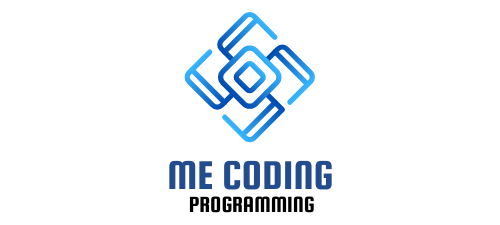Programming, a field known for its technological advancements and widespread influence, has often been a topic of debate when it comes to career choices. While some individuals find programming fulfilling and rewarding, others argue that it may not be the best path to pursue. In this article, we will explore various aspects of programming as a career and shed light on why it can be perceived as a bad career choice for certain individuals.
I. Introduction
Programming, in simple terms, refers to the process of writing instructions for computers to execute specific tasks. It involves a combination of logical thinking, problem-solving skills, and coding expertise. Choosing a career is a crucial decision, as it significantly impacts one’s professional and personal life. Therefore, it is important to consider various factors before embarking on a specific career path.
II. Misconceptions about Programming
A. Perception of difficulty
One of the common misconceptions about programming is that it is incredibly difficult to learn and master. While programming does require dedication and continuous learning, it is a skill that can be developed over time with practice and perseverance. With the availability of online resources and educational platforms, acquiring programming skills has become more accessible than ever before.
B. Lack of creativity
Another misconception is that programming lacks creativity and is limited to writing lines of code. However, programming is a field that offers ample opportunities for creative problem-solving. Programmers often encounter complex challenges that require innovative thinking and out-of-the-box solutions. The ability to create efficient and elegant code is considered a form of artistic expression within the programming community.
C. Constant learning and adapting
Programming is an ever-evolving field, driven by advancements in technology and the need for more efficient solutions. This constant change requires programmers to stay updated with the latest developments and continuously acquire new skills. For some individuals, the need to constantly learn and adapt can be overwhelming and may lead to a perception of programming as a challenging and demanding career choice.
III. Challenges in Programming as a Career
A. High competition
The field of programming is highly competitive, with a large number of aspiring programmers entering the job market each year. This increased competition can make it challenging to secure desirable job positions and may lead to reduced job stability. Additionally, the rapid advancement of automation and artificial intelligence has led to the automation of certain programming tasks, further intensifying the competition for specialized roles.
B. Technological advancements
Technology evolves at a rapid pace, introducing new programming languages, frameworks, and tools. While these advancements bring opportunities for innovation, they also require programmers to constantly update their skills and adapt to new technologies. This continuous learning curve can be demanding and may require significant time and effort investment.
C. Long working hours and stress
Programming often involves long working hours, especially when working on complex projects or meeting tight deadlines. The pressure to deliver high-quality code within strict timelines can contribute to stress and burnout. It is essential for programmers to maintain a healthy work-life balance and prioritize self-care to mitigate the negative effects of prolonged working hours.
IV. Job Satisfaction and Burnout
A. Lack of fulfillment
Despite the technical challenges programming offers, some individuals may find themselves lacking a sense of fulfillment in their programming careers. This can be attributed to factors such as working on repetitive tasks or being involved in projects that don’t align with their interests or values. It is important for individuals to find meaning and purpose in their work to maintain job satisfaction.
B. High burnout rates
The demanding nature of programming, coupled with long working hours and high expectations, can contribute to burnout. Burnout is a state of chronic physical and emotional exhaustion, often resulting from prolonged periods of stress and imbalance. It is crucial for programmers to prioritize self-care, establish healthy boundaries, and seek support when experiencing burnout symptoms.
C. Monotonous tasks
In certain programming roles, individuals may find themselves working on repetitive or monotonous tasks. This can lead to a lack of motivation and creativity, impacting job satisfaction. Exploring diverse programming opportunities or combining programming with other skills can help alleviate the monotony and keep the work engaging and fulfilling.
V. Impact of Automation and Outsourcing
A. Automation replacing certain roles
Advancements in automation and artificial intelligence have led to the automation of certain programming tasks. Routine and repetitive coding activities can now be automated, reducing the need for manual intervention. While this automation streamlines processes and increases efficiency, it also poses a challenge for programmers whose roles are at risk of becoming obsolete.
B. Outsourcing affecting job availability
The globalization of the job market has made it easier for companies to outsource programming tasks to lower-cost regions. This can impact job availability in certain locations, as companies seek cost-effective alternatives for their programming needs. Programmers need to adapt to these changes and consider diversifying their skill set to remain competitive in a global job market.
C. Global competition
With the rise of remote work and the ability to connect with talent from around the world, programmers now face global competition. Companies have the flexibility to hire skilled programmers from different geographical locations, increasing the pool of potential candidates for a given job position. This intensifies the competition and requires programmers to constantly upgrade their skills to stay relevant in the global market.
VI. Future Job Market
A. Emerging technologies
The future of programming is closely intertwined with emerging technologies such as artificial intelligence, machine learning, and blockchain. These technologies offer new opportunities for programmers to specialize and contribute to cutting-edge innovations. However, it also means that programmers need to stay updated with the latest trends and develop skills in these emerging domains to remain competitive in the job market.
B. Changing skill requirements
As technology evolves, the skill requirements for programming jobs are also changing. Employers are increasingly looking for programmers who possess a combination of technical expertise and soft skills such as communication, teamwork, and problem-solving. This shift highlights the importance of holistic development and continuous learning for programmers.
C. Uncertain career prospects
The future of programming careers can be uncertain due to various factors such as automation, outsourcing, and evolving job market demands. However, it is important to note that programming skills are still in high demand and can lead to promising career opportunities for individuals who adapt to changes, acquire new skills, and stay updated with industry trends.
VII. Alternatives to Programming
A. Exploring different career paths
If programming doesn’t align with an individual’s interests or goals, there are various alternative career paths to consider. These can include fields such as data analysis, user experience design, project management, or digital marketing. Exploring different options can help individuals find a career that better suits their skills and aspirations.
B. Combining programming with other skills
Programming skills can be valuable in combination with other domains. For example, individuals with programming knowledge can explore opportunities in bioinformatics, financial analysis, or game development. By integrating programming with their areas of interest, individuals can create unique career paths that leverage their diverse skill set.
C. Entrepreneurship opportunities
Programming skills provide a solid foundation for entrepreneurship. Individuals with programming expertise can develop their own software, mobile applications, or websites. This entrepreneurial route allows individuals to exercise creativity, take ownership of their work, and potentially achieve financial independence.
VIII. Conclusion
In conclusion, while programming can be a rewarding and fulfilling career for many, it may not be the ideal choice for everyone. The challenges associated with programming, including high competition, constant learning, and long working hours, can make it a bad career fit for individuals seeking different levels of job satisfaction and work-life balance. It is essential for individuals to consider their interests, strengths, and aspirations before making a career decision and explore alternative paths that align better with their goals.
IX. FAQs
- Can programming be a good career for some people?
- Absolutely! Programming can be a highly rewarding career for individuals who have a passion for technology, problem-solving, and continuous learning.
- What are the benefits of a programming career?
- A programming career offers opportunities for creativity, innovation, and job security in a fast-evolving technological landscape. It also provides the flexibility to work remotely and offers competitive salaries.
- How can one overcome the challenges in programming?
- Overcoming challenges in programming requires perseverance, continuous learning, and maintaining a healthy work-life balance. It is important to prioritize self-care, seek support when needed, and stay updated with industry trends.
- Is programming suitable for creative individuals?
- Yes, programming can be a great fit for creative individuals. It requires creative problem-solving, logical thinking, and the ability to develop elegant and efficient solutions.
- What other careers can one pursue if programming isn’t the right fit?
- If programming isn’t the right fit, individuals can explore alternative careers such as data analysis, user experience design, project management, digital marketing, or entrepreneurship based on their interests and skills.

